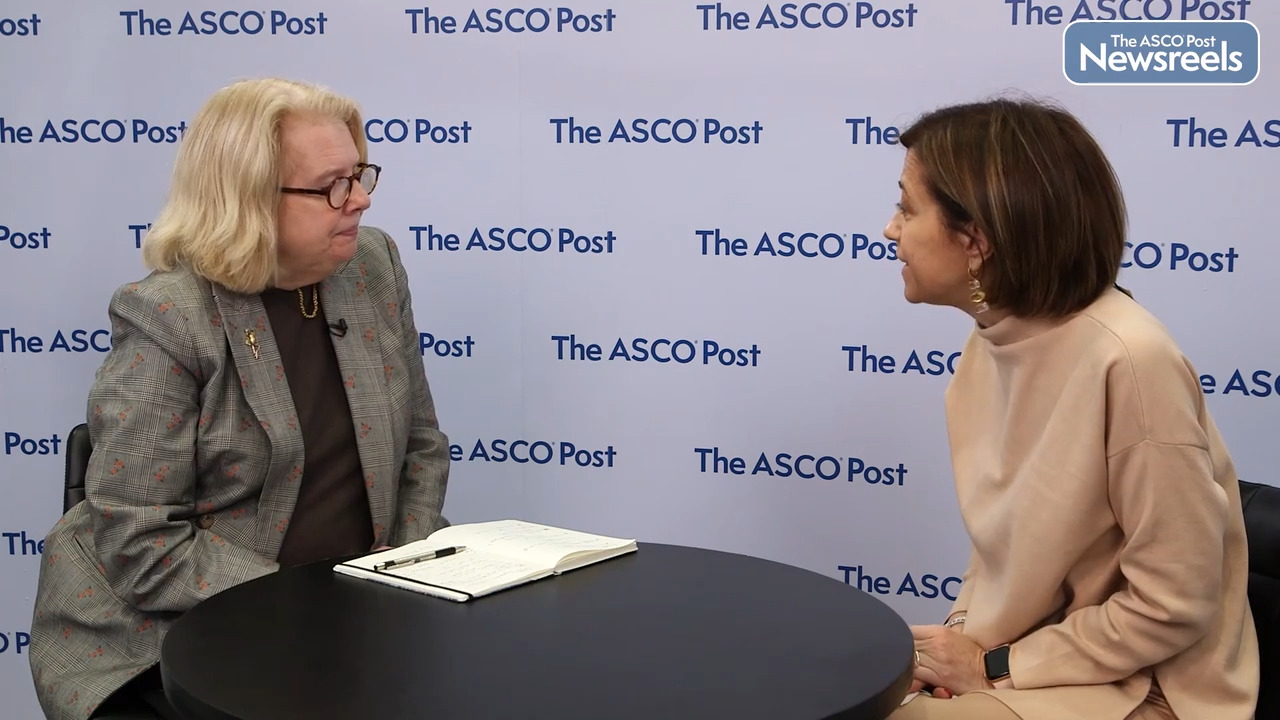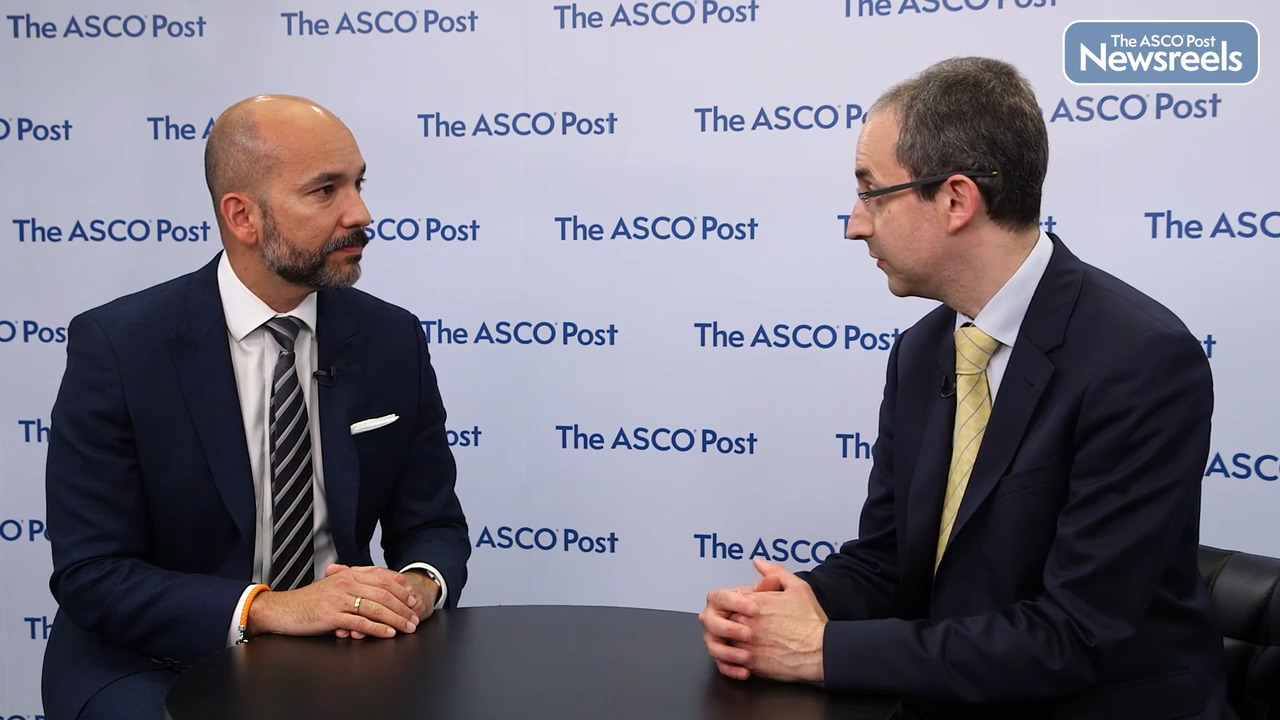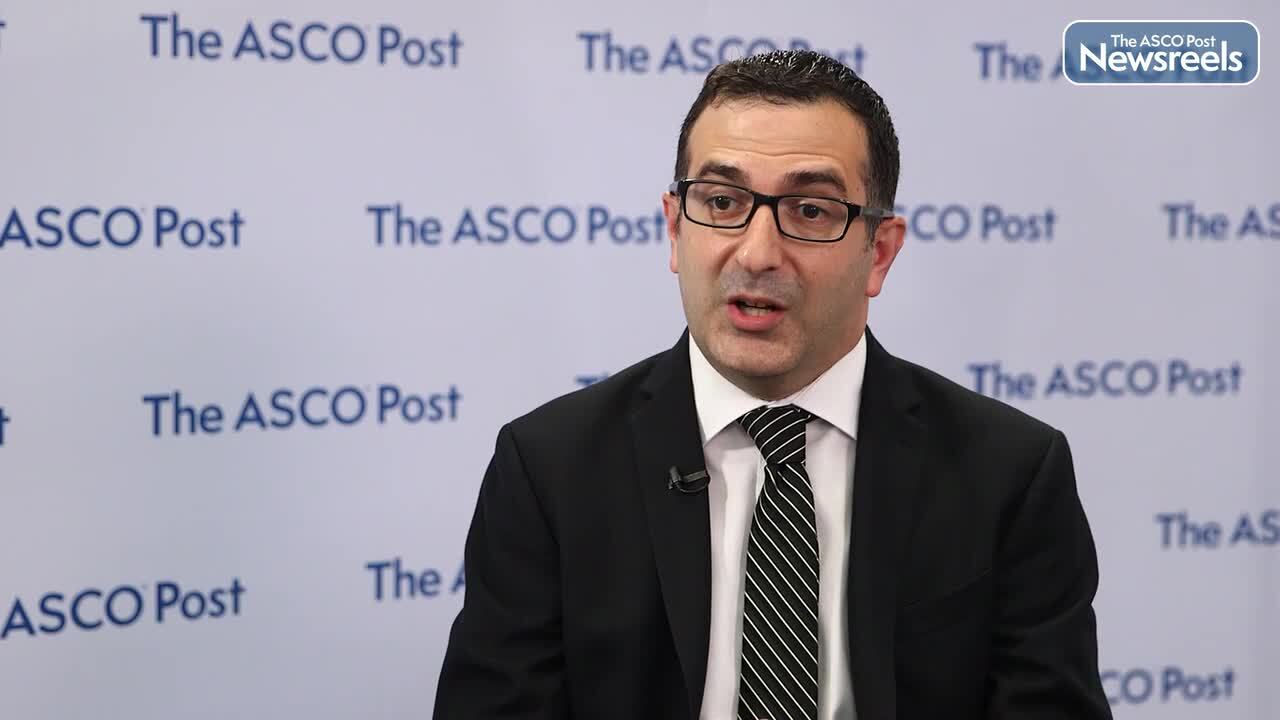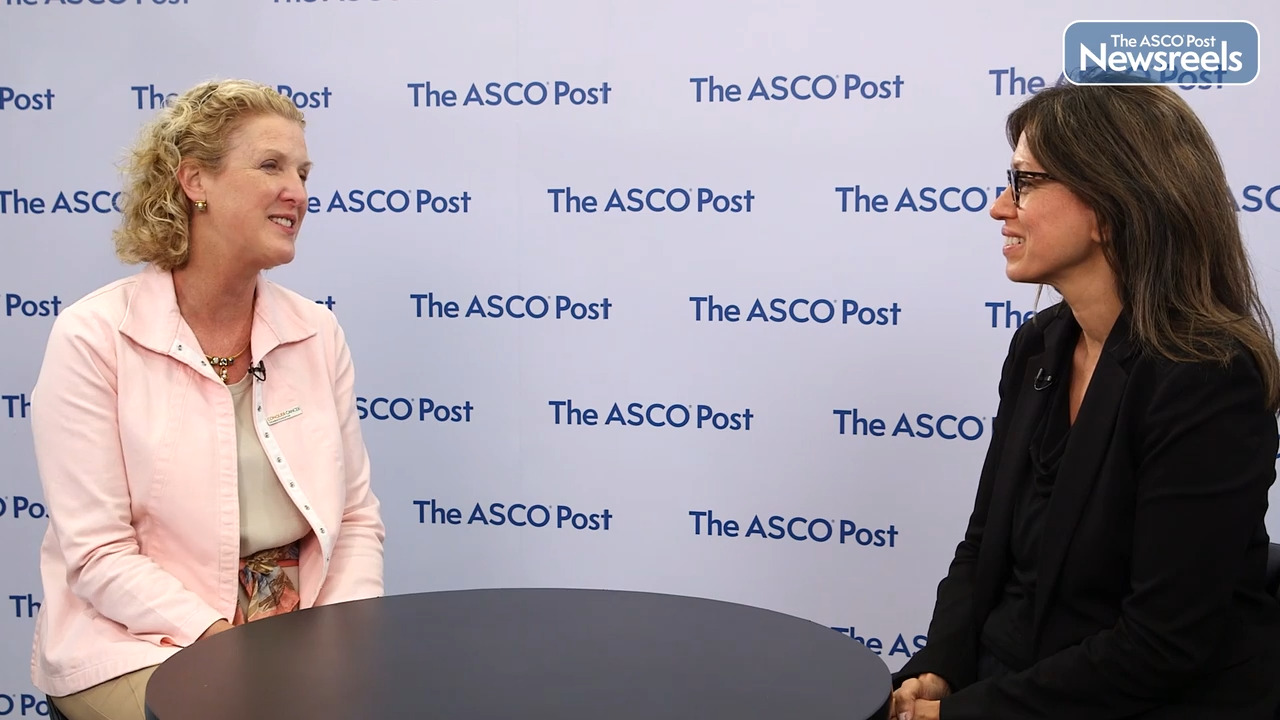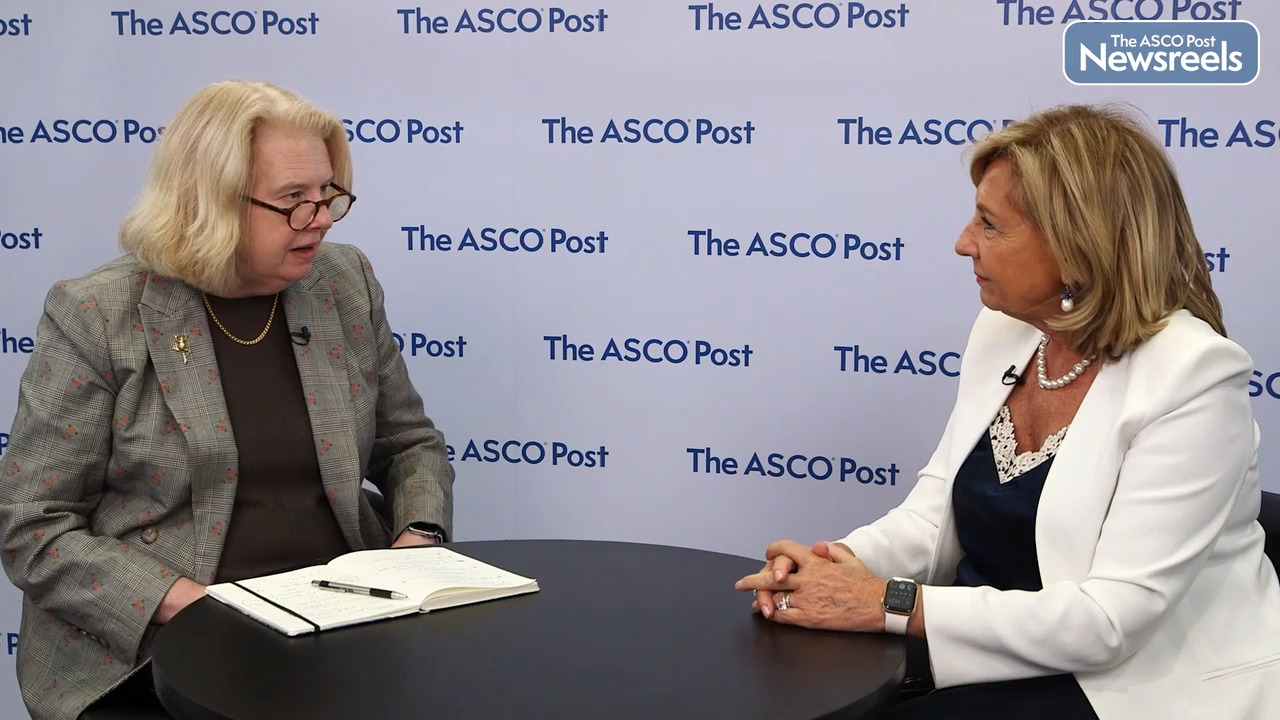Karim Chamie, MD, on Bladder Cancer: Final Results on N-803 and Bacillus Calmette-Guérin
2022 ASCO Annual Meeting
Karim Chamie, MD, of the University of California, Los Angeles, discusses final clinical results on combining the superagonist N-803 with bacillus Calmette-Guérin (BCG) in patients whose carcinoma in situ and high-grade non–muscle-invasive bladder cancers are unresponsive to BCG alone. Of note, cystectomy was avoided in more than 90% of patients with 2 years of follow-up (Abstract 4508).
Transcript
Disclaimer: This video transcript has not been proofread or edited and may contain errors.
So, patients with high-grade BCG unresponsive bladder cancer have limited treatment options. They often are offered either a radical cystectomy, which is a life altering operation which involves removal of the entire bladder and the surrounding organs, or treatments with systemic immunotherapies, such as pembrolizumab. With the QUILT-3032 study, what we did was we utilized intravesical IL-15 super-agonists in combination with BCG for patients with BCG-unresponsive bladder cancer. It's a phase two, phase three single arm study in which we enrolled 84 patients with CIS, plus or minus papillary disease, and an additional 77 patients with papillary disease only. Patients received 50 mg of BCG plus 400 mcg of N-803. This was done intravascularly once a week for six weeks, followed by three weekly treatments, similar to SWAG protocols. Our primary endpoint was safety and efficacy. Specifically, as far as efficacy, it was complete response rate at any time, and durability, which meant watching patients respond to therapy and median duration. What we found was that 71% of patients with carcinoma in situ responded at any time, and the median duration of that response was 26.2 months. Which is a phenomenal finding, because patients now have the option of being able to have intravesical therapy and maintaining their bladder for at least two years in this cohort. This compares favorably to checkpoint inhibitors, such as pembrolizumab, where they found 41% of patients had a complete response rate at any time, and the median duration of that response was about a year. The BLA for this treatment, namely N-803 plus BCG, was submitted and we hope to attain approval of this vitally important drug for this critically unmet need and frail cohort of patients.
Related Videos
The ASCO Post Staff
Ursula A. Matulonis, MD, of Dana-Farber Cancer Institute, and Domenica Lorusso, MD, PhD, of Italy’s Gemelli University Hospital, discuss phase III data from the MITO23 trial on single-agent trabectedin vs clinician’s choice of chemotherapy in patients with recurrent ovarian, primary peritoneal, or fallopian tube cancers of BRCA-mutated or BRCAness phenotype. Although trabectedin has demonstrated antitumor activity in relapsed platinum-sensitive disease, it does not appear to improve survival outcomes when compared with standard chemotherapy in the BRCA-mutated population (Abstract LBA5504).
The ASCO Post Staff
Gilberto de Lima Lopes, Jr, MD, MBA, of the Sylvester Comprehensive Cancer Center at the University of Miami, and Matthew Krebs, PhD, of The University of Manchester and The Christie NHS Foundation Trust, discuss results from the CHRYSALIS study. The trial showed that the bispecific antibody amivantamab-vmjw demonstrated antitumor activity, even after prior treatment, in patients with non–small cell lung cancer that exhibits the MET exon 14 skipping mutation (Abstract 9008).
The ASCO Post Staff
Rami Manochakian, MD, of Mayo Clinic Florida, discusses the phase II findings of the NADIM II trial, which confirmed that, in terms of pathologic complete response as well as the feasibility of surgery, combining nivolumab and chemotherapy was superior to chemotherapy alone as a neoadjuvant treatment for locally advanced, resectable stage IIIA non–small cell lung cancer (Abstract 8501).
The ASCO Post Staff
Lisa A. Carey, MD, of the University of North Carolina Lineberger Comprehensive Cancer Center, and Shanu Modi, MD, of Memorial Sloan Kettering Cancer Center, discuss the phase III findings from the DESTINY-Breast04 trial, which compared fam-trastuzumab deruxtecan-nxki (T-DXd) vs treatment of physician’s choice (TPC) in patients with HER2-low unresectable and/or metastatic breast cancer. T-DXd is the first HER2-targeted therapy to demonstrate clinically meaningful improvement in progression-free and overall survival compared with TPC in this patient population, regardless of hormone receptor or immunohistochemistry status or prior use of CDK4/6 inhibitors (Abstract LBA3).
The ASCO Post Staff
Ursula A. Matulonis, MD, of Dana-Farber Cancer Institute, and Nicoletta Colombo, MD, of the University of Milan and the European Institute of Oncology, discuss phase II results on the overall survival benefit of intermittent relacorilant, a selective glucocorticoid receptor modulator, combined with nab-paclitaxel, compared with nab-paclitaxel alone in patients with recurrent platinum-resistant ovarian cancer. A phase III trial comparing intermittent relacorilant plus nab-paclitaxel with investigator’s choice of chemotherapy in primary platinum-refractory disease is ongoing (Abstract LBA5503).
